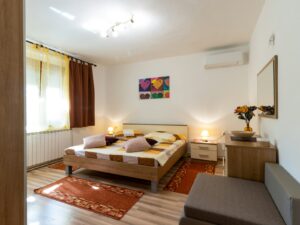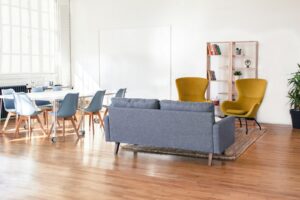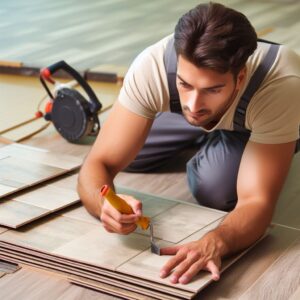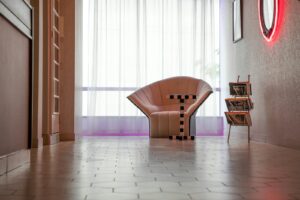Luxury vinyl flooring is an excellent choice for humid spaces. Its synthetic composition makes it highly resistant to moisture, preventing warping, mold, and mildew growth. Luxury vinyl flooring comes in a variety of styles that mimic the look of natural materials like hardwood or stone, offering both durability and aesthetics in humid environments.
Humid spaces present numerous challenges for traditional flooring materials. Excess moisture in the air can cause hardwood floors to warp, laminate to swell, and both materials to become susceptible to mold and mildew growth. These issues not only compromise the integrity of the flooring but also pose health risks to occupants.
Weather
Like most materials, luxury vinyl can expand slightly in response to heat and contract in cooler temperatures. However, this movement is typically minimal compared to natural wood flooring.
Luxury vinyl flooring is generally highly resistant to moisture, but prolonged exposure to high humidity or moisture can potentially cause issues like warping or buckling, especially if the subfloor is not properly prepared or if there are installation issues.
While luxury vinyl is less susceptible to temperature changes compared to materials like laminate or hardwood, extreme heat or cold can still affect its performance over time. For example, direct sunlight exposure over long periods may cause fading or discoloration.
Luxury Vinyl Flooring Core
Both WPC and SPC cores are inherently waterproof materials. This means that they do not absorb moisture, preventing the growth of mold and mildew and protecting the integrity of the flooring even in humid environments. This property makes luxury vinyl flooring suitable for areas like bathrooms, kitchens, and basements where moisture levels can be high.
WPC and SPC cores are engineered to be dimensionally stable, meaning they are less prone to expansion and contraction in response to changes in humidity compared to natural materials like hardwood. This stability helps prevent issues such as warping, buckling, or gaps between planks or tiles, ensuring the longevity and performance of the flooring in humid conditions.
The waterproof and stable core of luxury vinyl flooring acts as a barrier, protecting the underlying subfloor from moisture damage. This is particularly important in areas where moisture may seep through the flooring, such as bathrooms or laundry rooms.
Installation for humid spaces
In humid spaces, it’s essential to choose an installation method for luxury vinyl flooring that enhances its resistance to moisture and ensures long-term durability. Two common installation methods that are particularly suitable for humid environments are:
Floating installation involves laying the luxury vinyl planks or tiles over the subfloor without using adhesive. Instead, the planks or tiles are attached to each other via click-lock or tongue-and-groove mechanisms. This method creates a “floating” floor that can expand and contract with changes in humidity without being constrained by adhesive.
Allows for natural expansion and contraction of the flooring, reducing the risk of warping or buckling in humid conditions.
Provides a barrier against moisture seeping through the subfloor, enhancing the flooring’s resistance to water damage. Simplifies installation and allows for easier removal or replacement of individual planks or tiles if needed.
In this method, luxury vinyl planks or tiles are laid directly onto the subfloor without adhesive. The weight of the flooring and its interlocking design keep the planks or tiles in place without the need for glue.
Minimizes the use of adhesives, reducing the risk of moisture trapping and allowing for better airflow beneath the flooring.
Facilitates easy removal and replacement of damaged or worn-out planks or tiles. Provides flexibility in installation, as the flooring can be easily repositioned during installation.
Read More
Keep Luxury Vinyl Plank From Fading
Sound Matters: Investigating Noise Levels in Luxury Vinyl Flooring




